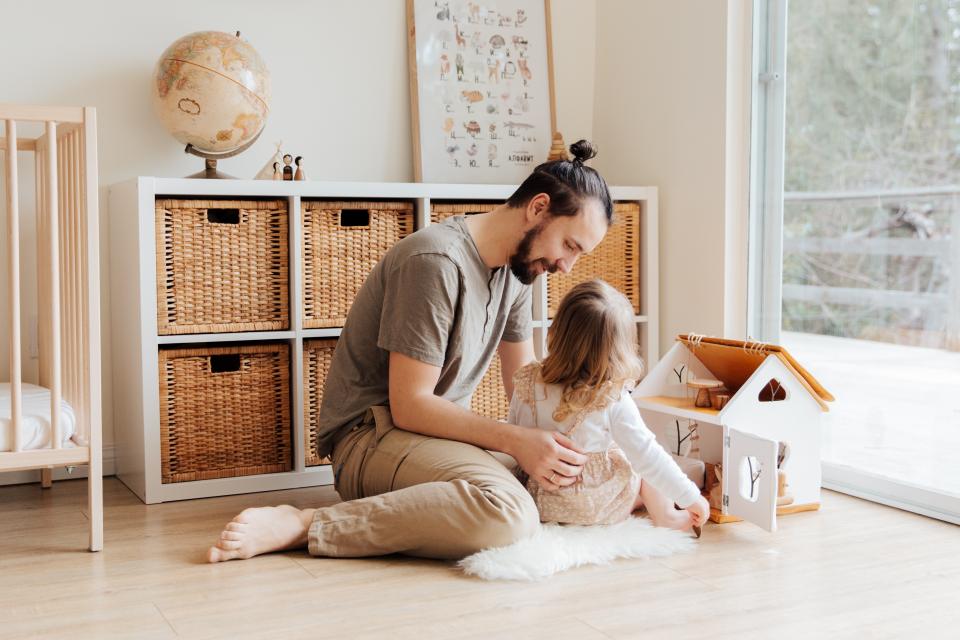Dear Marsha: Shared Parenting During a Crisis

How do we manage shared parenting during a crisis like the COVID-19 pandemic?
There are many good guidelines coming out about how to keep sharing parenting during this crisis. Some of the ideas below are from the Association of Family and Conciliation Courts, as well as my own experience.
Have compassion
Go easy on yourself and the other parent. These are highly unusual times and so we need to treat each other with patience, understanding and compassion. There is no textbook on how to deal with the other parent during a pandemic, and we are all trying to figure this out as we go. Be generous with the other parent to make up for missed parenting time, if it is safe to do so.
Think of ways to keep the kids occupied
Share with each other ideas for keeping your child entertained while we are all spending more time at home. Make plans to get your child outside, not at a playground or busy public park, but with a walk or a bike ride. Everyone in your household can participate, as long as no one is being quarantined due to suspected or known exposure to the virus. Make virtual play dates if your child is young, and allow your older children more screen time to keep up with friends. Practice cooking together.
Refer to your parenting plan
Continue to follow parenting plans and court orders. Even if you are not sure the other parent is following safety advice in the same way or as carefully as you are (having large groups to the house, having people come and go without maintaining the recommended 6-foot apart distance, etc.), you must still maintain your parenting plan.
Acknowledge your concerns
As always, try to talk with the other parent about your concerns, either directly or with the help of a third-party. Don’t use the virus as another reason to withhold parenting time, the courts are not likely to look favorably on a parent that took advantage of the crisis to negatively impact the other parent.
If you think the other parent is acting in very unsafe ways, like being around people who are known to be exposed to the virus or who have a fever, ongoing chest congestion or other symptoms, then you can appeal to the court for an emergency order.
Be mindful about finances
The pandemic will create an economic hardship for most parents, both those who are paying child support and those who are receiving child support. The parent who is paying should try to provide some money as consistently as possible, even if it can’t be the full amount. The parent who is receiving payments should try to be understanding about these challenging and temporary circumstances.
Work as a team to keep your family healthy
Be informed about how to stay healthy. Consider making a list of basic routines that both of you can agree on. Take care to post and maintain those routines in both homes.
Share with each other a list of how you will keep your child safe, emphasizing keeping social distance from others. Social distancing is carefully maintaining the physical space between people to avoid spreading illness. Staying at least six feet away from other people lessens your chances of catching COVID-19.
If your child is sick, work together
What if your child is sick? If the illness is something “regular” and not flu or virus-like, your transitions between home should proceed as they usually do. If your parenting plan already states that a sick child should stay with one parent, then you follow that rule.
If the illness is causing your child to be especially fearful because of how everyone is talking about the virus, communicate with the other parent however you usually communicate to see if the child can stay with you. You may also talk together with the child about how the other parent will take good care of him/her and how you two will be checking in regularly.
If the other parent is not agreeing with you, your child needs to be exchanged if they are well enough to do so. Be sure to communicate in writing what medication the child is taking, when they last took it, and how they are behaving (nausea, throwing up, coughing and other cold symptoms) so that you can each track changes in the direction and strength of the illness.
Crisis is a time of danger and opportunity. I have heard of many parents who had been fighting come together in this time of need. This is a ripe time for co-parents to change the level of conflict and mistrust between one another by reaching out and being communicative, generous, and understanding. Being a single parent during these circumstances is especially difficult, and this could be the time of a new beginning your child will benefit for years to come.
Take Marsha's Survey on Co-Parenting
Assist Dr. Marsha Kline Pruett with her research on what shared parenting is like across different families by taking this survey. All submissions are entirely anonymous.




